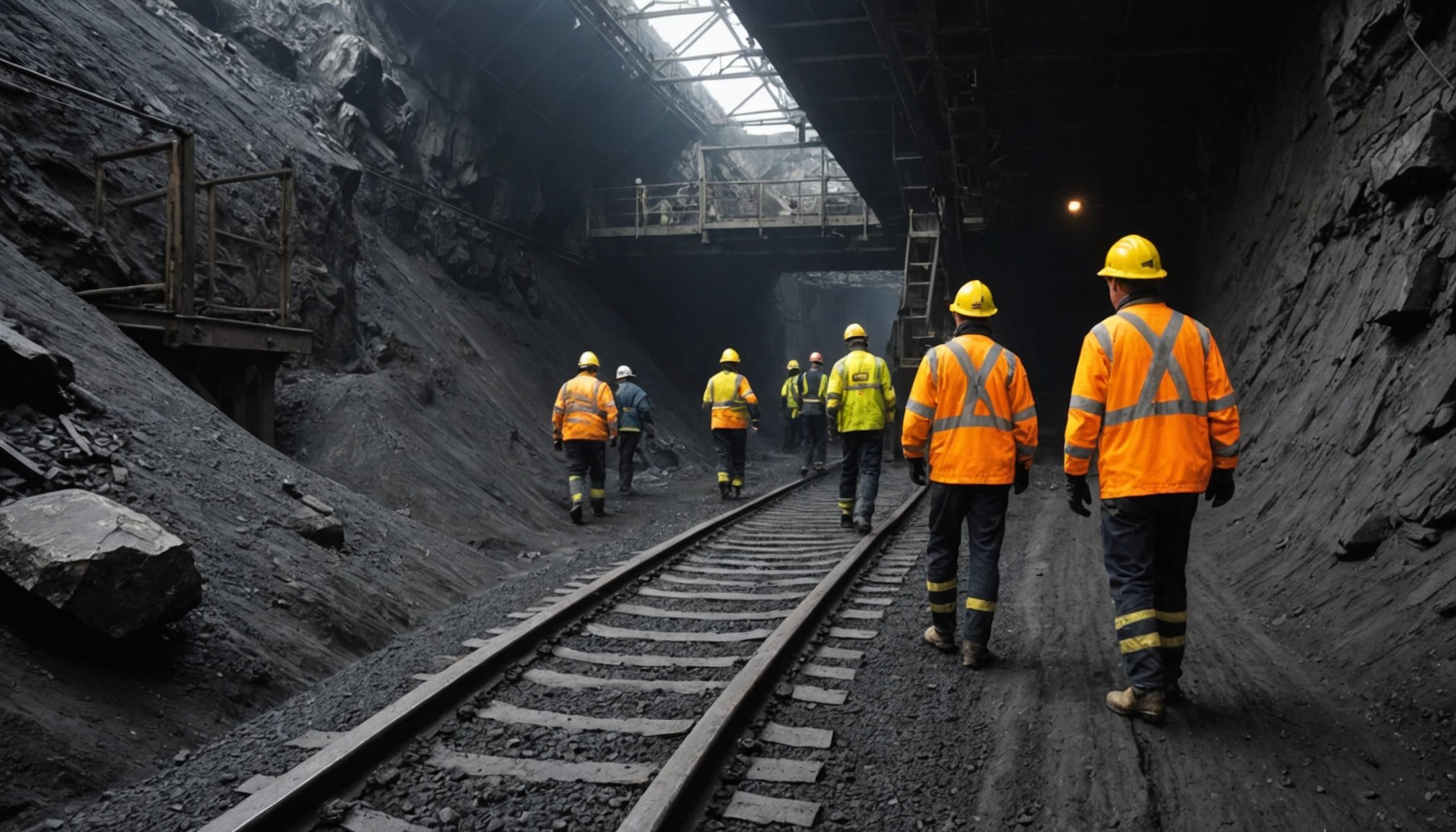Overview of British Coal Mining History
British coal mining history is rich with both economic impact and cultural significance, having shaped not only local communities but also the nation’s progress. The evolution of coal mining in Britain has been marked by numerous pivotal events. One of the most notable eras was the Industrial Revolution, during which coal became the backbone of British industry, powering factories and igniting rapid urban growth. This transformation had profound socioeconomic effects, making coal an essential resource for economic expansion.
Key historical events further define this heritage. The enactment of the Mines Act in the 19th century marked a significant shift towards safer working conditions and the protection of miners, setting a precedent for future labor reforms. Another crucial period was during the World Wars, where coal production was critical for the war effort, emphasizing its strategic importance.
In parallel : Discover Edinburgh’s Old Town: Your Comprehensive Guide to Booking a Historical Walking Tour Adventure
In local contexts, coal mines served as the lifeblood of communities, fostering a strong mining culture. Entire towns often relied on these mines for employment and livelihood, leading to tight-knit communities with rich traditions rooted in their coal-mining heritage. These communities have often commemorated their coal mining heritage through monuments and museums, preserving the historical significance of this once-thriving industry.
Top Guided Tours of British Coal Mining Sites
Tour 1: The National Coal Mining Museum
Delve into British coal mining history at The National Coal Mining Museum, where guided tours bring the coal mining heritage to life. This museum offers visitors an unparalleled journey into the historical significance of coal mining. Knowledgeable guides lead you through interactive exhibits, providing detailed insights into both the economic impact and the culture intertwined with coal mining.
This might interest you : Top UK Destinations for Memorable Puffin Watching: Discover Stunning Birdwatching Adventures
One of the museum’s highlights is the underground tour, allowing guests to walk the same paths miners once did. These tours offer a vivid glimpse into the lives of miners, emphasizing the industry’s crucial role in shaping local communities. The historical tours are designed to be both educational and engaging, making them suitable for all ages.
Visitors frequently commend the educational value and the expertise of the guides, who share captivating anecdotes and detailed explanations. The museum also incorporates hands-on experiences, allowing visitors to understand the coal industry’s impact more holistically. The unique blend of storytelling and factual history ensures a rich, memorable experience that acknowledges the depth of coal mining’s legacy.
Planning a visit to The National Coal Mining Museum is recommended to fully appreciate the intricate history and significance of coal mining in Britain.
Tour 2: The Big Pit National Coal Museum
Explore the rich coal mining heritage at The Big Pit National Coal Museum, renowned for its immersive underground tours. This experience offers a compelling glimpse into the historical significance of coal mining, allowing visitors to descend 300 feet and walk the paths of past miners. Guided by knowledgeable experts, these historical tours share invaluable insights into the coal industry’s impact on Britain’s economy and social history.
One of the standout features is the tour guide’s ability to contextualize the coal mining history within the broader fabric of British society, detailing the evolution of mining techniques and their societal implications. The guides’ storytelling prowess captivates visitors, painting a vivid picture of the miners’ daily lives and the rigorous conditions they endured.
Additionally, the museum ensures accessibility for all visitors, with facilities designed to accommodate diverse needs. Visitors praise the meticulous attention to detail in both the historical context provided by guides and the array of interactive exhibits available. These aspects combine to make The Big Pit National Coal Museum a must-visit for those eager to delve deeper into the heritage of British coal mining. Accessibility considerations and the overall visitor-oriented approach ensure an enriching experience for every attendee.
Tour 3: Easington Colliery
Easington Colliery offers a distinct slice of British coal mining heritage, bringing to light unique aspects that set it apart from other coal mining tours. This site preserves the rich historical significance of the coal industry, enabling visitors to explore the intertwined local culture. The combination of its striking landscape and poignant history allows participants to connect deeply with the miners’ legacy.
Visitors frequently praise the authentic and emotive narratives shared by tour guides, who expertly weave stories that animate the site’s past. These anecdotes provide a tangible link to the once-thriving community of Easington, famed for its pivotal role in supporting Britain’s industrial workforce. The tours emphasize significant historical events, such as the miners’ strikes and the social dynamics within mining communities, painting a vivid picture of the coal industry’s impact on social history.
When planning a visit to Easington Colliery, practical considerations include booking in advance, especially during peak times when demand is high. Preparing for variable weather conditions and wearing suitable footwear are recommended, as the site offers both indoor and outdoor experiences. Testimonials highlight the tour’s capacity to engage audiences of all ages, ensuring a memorable glimpse into Britain’s dynamic coal mining narrative.
Historical Significance of Coal Mining in Britain
The significance of coal mining in Britain cannot be understated, as it played a pivotal role in the nation’s development. During the Industrial Revolution, coal mining became the backbone of significant technological and industrial advancements. It provided the necessary fuel to power steam engines, which ignited a wave of prosperity and growth, marking a transformative era for Britain.
Labor movements and workers’ rights were notably influenced by coal mining. The harsh conditions miners faced sparked demands for better working conditions and fair wages, giving rise to notable labor movements. This push for change led to the formation of powerful unions that championed workers’ rights, ultimately resulting in crucial legislation like the Mines Act, which improved safety and labor conditions.
Moreover, the coal industry’s impact extends beyond the economic sphere into social history, contributing profoundly to modern Britain. It influenced the structure of working-class communities, fostering solidarity and shared cultural identity tied closely to mining heritage. The legacy of coal mining is evident in the cultural fabric of erstwhile mining towns, now steeped in history and indelible stories that continue to resonate with people today.
It is this enduring blend of economic impact and social fabric that underscores the historical significance of coal mining in shaping modern Britain.











